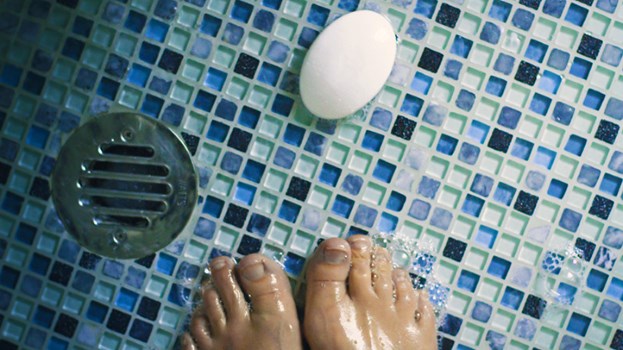Have you ever experienced those nights where you toss and turn and can’t seem to…
7 Ways You Could Be Showering Wrong

Everything from water temperature to what you lather up with can take a toll on your skin.
Taking a shower may be the first thing you do every morning or the last thing you do before bed, but are you doing it right? Sure, it seems simple enough: Turn on the water, hop in, lather up, rinse, and dry. Well, it turns out there’s more to showering smartly than you know. From the water temperature to what products you use and when, here are some ways you could be getting your shower all wrong.
1. Showering at the wrong temperature
Too hot, and you’ll dry your skin out. Too cold, and your cleanser doesn’t lather as easily. So what is the right water temperature for your shower? Research suggests that 103 degrees Fahrenheit plus or minus 2 degrees is the ideal temperature range for those who have moderately dry skin. Water that is too hot or too cold can strip your skin of its natural oils, leaving it dry and itchy. To set the water at the right temperature every time, consider using a shower head such as a Delta Temp20, which displays the temperature so you know it’s right before you step in.
2. Showering for too long
Standing under a warm stream of water may feel good, but staying in there for too long is doing more harm than simply wasting water. Five to 10 minutes should be long enough for the average person to get clean. Depending upon the hardness and chemical content of water, the longer you shower, the drier your skin will likely get. This can lead to dry, cracked skin and may exacerbate pre-existing skin conditions, such as psoriasis or eczema.
3. Washing with a pouf
Bath poufs are a great way to minimize the use of your body wash: You can definitely get away with using less product and still lather your entire body. But if you have sensitive or dry skin, the exfoliation with a pouf may be too harsh. Using a washcloth or just your hands could be less irritating.
4. Not cleaning your washcloth regularly
Washcloths can harbor bacteria if they aren’t thoroughly dried out after each use, which can be difficult in a moist bathroom. Use a fresh washcloth every other day. If you’re using a pouf, replace it every two months.
5. Soaping up before you shampoo
To prevent acne and skin irritation, experts recommend the following regimen: Shampoo, rinse it off, apply conditioner, wash your body, and then rinse off the conditioner and body wash at the same time. This way, the wash helps remove any conditioner and leftover shampoo from your skin. As for shaving, if you save it for last, your hairs will be softer from the heat, water, and steam — and easier to remove.
6. Showering in the morning
While showering when you get up can help you perk up, showering at the end of the day may be better for your overall health. The best time to shower is in the evening so that you can wash off all of the dirt, allergens, chemicals, and a wide variety of toxins that accumulate on your skin and hair throughout the day. In addition, showering before bed prevents transferring those contaminants to your partner or bedding.
7. Showering too often
Not everyone needs to shower daily, especially in the colder winter months when you’re probably not sweating as much and your skin tends to be drier. If you do exercise or have a job that gets you dirty and you feel you need to shower twice a day, experts suggest a quick rinse one time and full shower the other. We don’t get that dirty as adults.
Article adapted via



